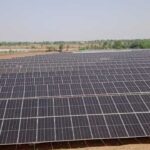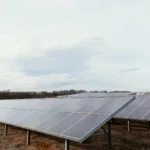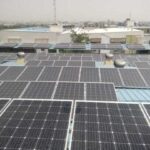India and Japan Strengthen Renewable Energy Cooperation
India and Japan Strengthen Renewable Energy Cooperation
India and Japan have initiated a renewable energy cooperation, a partnership under the Asia Energy Transition Initiative (AETI) to support India’s clean energy transition.
India has set an ambitious target of achieving net-zero by 2070, while Japan aims to achieve the same by 2050. The partnership would work on the agenda covered in the India-Japan Energy Dialogue 2007 and will subsequently expand into areas of mutual benefit. The two countries are utilizing new technologies and economic models that would help reduce emissions.
The Indian subcontinent’s massive renewable energy potential can boost green hydrogen (GH2) production and immense potential for a GH2 economy. Nepal and Bhutan have surplus hydropower potential and green hydrogen electrolysers can tap this in countries like India and Bangladesh. With increasing electricity prices, finding a sustainable energy mix has become necessary for Japan, which currently faces twin challenges of energy security and transition. The country ranks fifth globally for its renewable energy capacity in 2021, according to Fitch Solutions.
Japan has also raised its renewable energy targets with an aim for 36-38% of renewables in its energy mix by 2030 based on the Strategic Energy Plan released in October 2021. Renewable energy resources account for 10% of the total energy, which has increased from 5.4% in 2012 to more than 10.4% of the TPES in 2020.
The Feed-in Premium (FiP) scheme by the government of Japan was implemented in April 2022 and is expected to improve the country’s energy transition and complement the existing FiT scheme, which has been in the market since 2012. FiTs were awarded to 250 kilowatt (KW) and 1 megawatt (MW) solar projects in the 12th Solar Auction Tender in June 2022. The FiPs were awarded to solar projects which were above 1 MW.
Another point of interest for Japan in renewable energy is offshore wind technology with the designation of three areas off the coast of Nagasaki, Niigata, and Akita areas for developing wind farms. The ministry selected five more areas as promising zones and eleven more suitable zones for developing offshore farms. This presents a good opportunity for potential investors in such renewable projects.
India and Japan can play an important role in clean energy transitions in south Asia. The first India-Japan environment week was held in New Delhi from January 12-13, 2023, to discuss various issues such as COP27 and G20/G7 leadership, among others. The increased reliance on fossil fuels remains a big hurdle.
Acknowledging the challenges, the government has initiated reforms such as the Green Growth Strategy in 2020 to achieve carbon neutrality. The grid interconnection problems have been a challenge for India, but events like the India-Japan Environment week would help create a roadmap to integrate variable renewable energy into the system through technological, institutional, and personnel cooperation.
Suggested Articles

New Loan Scheme for solar rooftop projects by IREDA
Solar installation for petrol pumps offers huge savings and energy independence. This 2025 guide explains system cost, subsidy, ROI, and installation process.

Financing made easy for the Rooftop Solar Projects
Switching to solar is easier than ever with flexible financing options. This guide explains how to fund your rooftop solar project through loans, subsidies, and government schemes to make clean energy more affordable and sustainable.

100 kW Solar Power Plant Cost in Haryana: The Ultimate Guide to the Best Rate Per Watt
Explore the 100 kW solar power plant cost in Haryana for 2025. Learn about pricing, government subsidy options, and how much you can save with solar energy.

How to Safely Install Solar Panels on Metal and Asbestos Rooftops
Discover how solar systems can be installed on metal sheds and asbestos roofs, making factories more energy-efficient and sustainable

Solar Sector Growth in India Slows as Investments Decline in Q1 2023
India’s solar sector experiences an investment slowdown in Q1 2023, reflecting challenges in funding and growth for renewable energy projects.

Everything you Need to Know about Bifacial Solar Panels technology
Learn how bifacial solar panels capture sunlight on both sides, boosting energy efficiency and maximizing solar power generation for homes and businesses.

How Total Solar PV Power Affects Solar System Efficiency
Total solar PV power represents the combined power output of a solar photovoltaic system. This guide explains its meaning, calculation, and how it directly impacts solar performance, efficiency, and long-term energy generation.

How Installers Cut Costs on Solar PV Module Mounting Structures
Solar PV mounting structures can significantly impact project cost. Explore how expert installers optimize design, materials, and labor to achieve safe, durable, and cost-effective solar installations